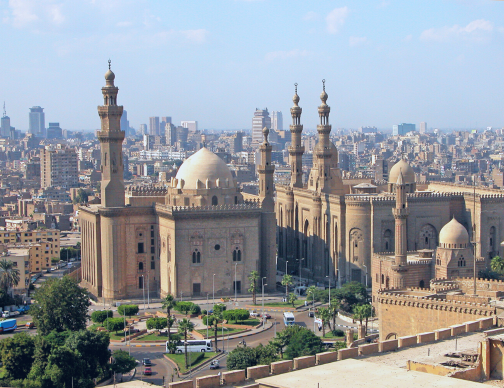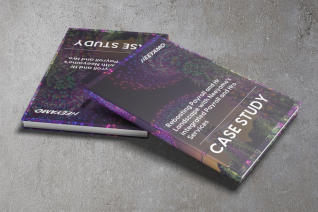Establish your presence globally with Neeyamo as we help you go beyond borders to manage your international payroll services and hire new talent in Egypt.
Overview
Egypt's rich history is not limited to its ancient wonders; it's also a hub of innovation and invention, from medical breakthroughs to advancements in engineering, such as antibiotics, toothpaste, paper and ink, and much more. Egyptian inventors have left an indelible mark on the world. When you hire people from Egypt, you gain access to a pool of creative thinkers and problem-solvers.
Do your organization's expansion plans require you to hire employees in Egypt? Do you lack a physical entity in the country – a key requisite to hiring local talent? Your solution is right here, Neeyamo – Payroll business solutions. Neeyamo - Global Payroll Services assists organizations worldwide with onboarding and managing employees in Egypt– processing a firm's payroll and tax services, managing local compliance requirements, benefits, and more.
Our Presence
Tools And Instances
Facts And Stats
Capital
Cairo
Currency
Egyptian Pound (EGP)
Official Language
Arabic
Fiscal Year
01 July - 30 June
Date Format
DD/MM/YYYY
Country Calling Code
20
Time Zone
UTC + 02:00
Global Payroll
Overview
Payroll: Meaning
Payroll is the list of compensation to be paid to employees of a company or organization for a set period or date. Global payroll provider companies allow organizations to outsource their payroll, allowing employers to focus on other aspects of their business.
Handling payroll for a widespread workforce can pose a significant challenge for any organization, and the added complication of compliance can make things worse. If companies spend more time processing payroll, it directly impacts day-to-day operations and their overall productivity. The solution to this is using an outsourced payroll provider.
Over the years, Neeyamo has observed these complexities and strived to provide a global payroll solution through a single technology platform - Neeyamo Payroll. Neeyamo's automatic payroll services provide multi-level controls to ensure adherence to local regulatory requirements.
What is an outsourcing payroll service?
Neeyamo, an outsourcing payroll service, acts as an employer's payroll tax calculator, ensuring adherence to local regulatory requirements using multi-level controls. Benefits of the payroll system include providing timely and accurate payroll - courtesy of our experts worldwide and using a tech-based integrated smart helpdesk solution with seamless support experience manned by payroll business solution experts - Neeyamo has all your payroll needs covered.
Payroll Taxes
Payroll tax is the percentage amount retained from an employee's salary and paid to the government to invest in the general population's welfare. These are statutory in nature and are levied from both the employer and employee. Additional statutory contributions are made by employers towards providing both short-term and long-term benefits for their employees.
Employee Taxes
The following are the employee contributions:
- Social Security - 11.00% (Minimum taxable wages is 1,400 EGP and maximum is 9,400 EGP)
- Total Employee Cost - 11.00%
The following is the bracket for income tax:
| Up to 15,000 EGP | 0% (Tax credit not applied) |
| 15,001 EGP – 30,000 EGP | 2.50% |
| 30,001 EGP – 45,000 EGP | 10% (Tax credit of 85%) |
| 45,001 EGP - 60,000 EGP | 15% (Tax credit of 45%) |
| 60,001 EGP - 200,000 EGP | 20% (Tax credit of 75%) |
| 200,001 EGP - 400,000 EGP | 22.50% (Tax Credit not applied) |
| Over 400,000 EGP | 25% |
Employer Taxes
Employer Payroll Contributions
Social Security - 18.75% (Minimum taxable wage is 1,400 EGP and maximum is 9,400 EGP)
COVID-19 Relief - 1.00% (valid until August 2021 and applies to employees with a net salary of 2,000 EGP and over)
Unemployment - 1.00%
Total Employment Cost: 19.75% - 20.75%
Payroll Cycle
Overview
Undoubtedly, payroll is a critical process for any organization. The pay cycle in Egypt refers to the period for which an organization pays its employees, and this can vary depending on the pay frequency that the organization chooses to adopt.
Frequency
In Egypt, employees are paid on a monthly basis, and wages must be paid by the 5th of the following month.
13th Month Cycle
In Egypt, there is no legal requirement for 13th-month payments.
Global Work
Overview
An Employer of Record services (EOR) provider helps you eliminate the hassle of handling complexities while onboarding a new employee in an international location. They help bridge the gap that otherwise mandates organizations to have a local registered entity and a local bank account prior to making a job offer to an international hire.
An EOR services provider acts as a legal employer, facilitates salary payments, and manages other statutory requirements such as health insurance, payroll taxes, and employee benefits, ensuring compliance with local tax laws and regulations.
This allows organizations to focus on collaborating with the employee in Egypt for operational tasks, with the knowledge that they have a cost-effective solution to support their global business payroll & HR requirements as they continue their global expansion.
Neeyamo, being a Cloud-based HR and Payroll company providing one of the best HRIS and payroll software solutions, strives to provide its customers with a seamless employee management experience and offers global compliance in payroll and EOR aspects with our Global Payroll Technology Stack.
HR Mandates and Practices
Increase in Minimum Wage
Effective July 1, 2023, Egypt will raise the minimum wage for workers in the private sector by 2700 EGP to 3000 EGP.
Effective from January 1, 2024, an increase in the private-sector minimum wage, from 3,000 Egyptian pounds to 3,500 Egyptian pounds per month.
Overtime
Employees required to work more than eight hours per day are entitled to receive their regular rate of pay plus 35 percent for overtime worked during daylight hours and 70 percent for overtime worked at night. Employees cannot be required to work more than two hours of overtime per day.
Employees required to work on weekends must be paid double their rate of pay and given another day off. Those working during their vacations also must receive double pay.
Data Retention Policy
Employee records must be maintained for at least one year from the date that their work relationship is terminated.
Increased Income tax exemption limit:
With effect from March 19, 2023, review the Raising Income Tax Exemption Limit from EGP 36,000 annually instead of EGP 24,000.
Hiring and Onboarding Requirements
Hiring
The Labour Law prohibits discrimination in employment based on gender, race, language, religion, or beliefs.
Onboarding
The following information is needed during onboarding:
- Personal Id
- Education Certificates
- Form (1) for Social Insurance
- Birth Certificate
- Valid Passport
- SS ID(Egyptian)
- Work Permit
Probation
The maximum probationary period permitted by law is three months, which is not extendable.
Leave
National Holidays
- Jan 7: Orthodox Christmas
- Jan 25: Revolution Day
- Apr 22: Eid al-Fitr
- Apr 25: Sinai Liberation Day
- May 1: labor Day
- Jun 30: Revolution Day
- Jul 1: Eid al-Adha
- Jul 23: Revolution Day
- Sept 27: Prophet's Birthday
- Oct 6: Armed Forces Day
Sick Leave
An employee can claim up to 6 months of paid sick leave and must provide a certificate of sickness. For the first 90 days of sick leave, the employee is entitled to 75% of their salary. For the following 90 days, the employee is entitled to 85% of their salary. If necessary, the employee may convert their annual leave days to sick leave.
Maternity Leave
Female employees that have been contributing to social insurance for the past 10 months are entitled to up to 3 months of maternity leave for each child up to three children and are entitled to 75% of the last salary.
Upon return to the workplace, the woman is entitled to 2- half-hour nursing breaks or a combined hour each day for 24 months after the date of birth.
For workplaces with more than 100 employees, the employer must provide an in-house nursery or is responsible for placing the child in nursery care until the age of schooling.
Parental Leave
In any organization, if there are more than 50 employees, the mother is entitled to 24 months of unpaid leave for each child.
For employees who have dependents, the ability to work flexible hours is not mandatory; however, in many cases, it will be stipulated in the employment contract.
Other Leave
- Annual Leave - In Egypt, annual leave is 21 days. Entitlement begins after 6 months of service. Employees over the age of 50 are entitled to 30 days of leave. If the employee has been employed for over 10 years, annual leave is 30 days.
- Study Leave - Employees shall be entitled to paid study leave subject to collective bargaining agreements. Duration is not defined.
- Pilgrimage Leave - An employee who has completed 5 continuous years of service with the employer shall have the right to leave for 1 month with full pay for performing religious pilgrimage duty or visiting Jerusalem. This leave shall be granted only once throughout his service period. This leave grants to Muslim civil Servants.
- Work-related injury leave - For temporary disability, 100% of the wage is paid from the first day of injury until the employer is cleared to return to work or is declared permanently disabled.
Termination
Notice Period
A two-month notice of termination must be given before the dismissal of employees whose service period does not exceed 10 years, and a three-month notice of termination must be given before the dismissal of employees whose service period exceeds 10 years. The employer may provide pay in lieu of notice.
Severance Pay
Severance payment is not mandatory in Egypt unless outlined in the employment contract.
Visa
Overview
Foreign workers cannot exercise work unless they have obtained a government permit to live and work in Egypt. A work permit is secured from the Ministry of Manpower and Migration. Work permits are only granted if there are no local qualified persons.
Foreigners are strictly prohibited from carrying on any work in Egypt without a valid work permit. A work permit for Egypt is granted by the Ministry of Manpower in Egypt and is usually for one year.
Before the authority issues a work permit for foreigners, a labor market test must prove that there are no local residents eligible for that position. When a work permit is finally granted, the applicant must train at least two local Egyptian nationals to work in the same position. Applying for a work permit in Egypt typically takes 1 to 3 months until the applicant can enter Egypt. It may take a further 2 to 4 months before the process is completed.
Egypt offers several types of visas, including the following
Work visa
Once a foreign national gets a work permit, their visa, such as a temporary/tourist visa, will be converted into a work visa.
Temporary/tourist visa
This option is a renewable single-entry 30-day tourist visa that individuals can get when arriving at Egyptian airports. It’s also the visa individuals obtain for a job.
Ordinary visa
An ordinary visa is valid for three to five years and allows an employee’s spouse to have a resident permit for the amount of time identified on their work permit.
Special visa
The special visa is for expats born in Egypt before May 26, 1952, or individuals who have lived in Egypt for more than 20 years from that date. It’s valid for ten years and can be renewed.
Employee Background Checks
Legal and Background Checks
Generally speaking, there are no restrictions or prohibitions against background checks on applicants. Background checks can be conducted by obtaining experience certificates from, or directly contacting, applicants’ former employers.
Last updated on November 06, 2023.
If you have any queries or suggestions, reach out to us at irene.jones@neeyamo.com
Vous avez des questions ? Contactez - nous
Entrez en contact avec l'un de nos experts et faites une démonstration rapide de nos services








